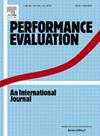对权力说真话:通过评估者和决策者的眼睛探索部委的评估部门
IF 1
4区 计算机科学
Q4 COMPUTER SCIENCE, HARDWARE & ARCHITECTURE
引用次数: 0
摘要
“基于证据的”发展政策导致影响评估优先考虑问责制,而不是解决过程学习问题。此外,评价学术主要是通过调查,而定性研究仍然很少。本文追溯荷兰外交部独立评价司内的一项特别评价。它问,“评估人员和政策制定者如何互动,说明性评估之后会有什么调整?”它使用了参与者的观察、文件以及对政策制定者和评估人员的采访。深入的专题分析产生了评估者角色的类型:(1)知识经纪人,(2)促进者,(3)档案,(4)真相揭示和(5)批评声音。最后,政策制定者和管理者以三种方式进行调整:象征性、工具性和赋权。这些结果表明,如果评估人员考虑合适的角色,他们(1)增加他们对被审查项目和相关利益相关者的部分理解,(2)增强集体学习在评估团队和更广泛的机构中出现的协同效应的潜力。本文章由计算机程序翻译,如有差异,请以英文原文为准。
Speaking truth to power: Exploring a Ministry’s evaluation department through evaluators’ and policymakers’ eyes
‘Evidence-based’ development policy has caused impact evaluations to prioritise accountability over addressing processual learning questions. Moreover, evaluation scholarship is dominated by surveys, whereas qualitative research remains scant. This article traces one particular evaluation, within the independent Evaluation Department of the Dutch Ministry of Foreign Affairs. It asks, ‘How do evaluators and policymakers interact and what adjustments follow from the illustrative evaluation?’ It used participant observations, documents and interviews with policymakers and evaluators. An in-depth thematic analysis resulted in a typology of evaluator roles: (1) knowledge broker, (2) facilitator, (3) archive, (4) truth-revealing and (5) critical voice. Finally, policymakers and managers adjusted in three ways: symbolic, instrumental and empowerment. These results imply that if evaluators deliberate a suitable role, they (1) increase their partial understandings of the programme under scrutiny and the involved stakeholders, and (2) enhance the potential of synergies in collective learning to emerge in an evaluation team and the broader institution.
求助全文
通过发布文献求助,成功后即可免费获取论文全文。
去求助
来源期刊

Performance Evaluation
工程技术-计算机:理论方法
CiteScore
3.10
自引率
0.00%
发文量
20
审稿时长
24 days
期刊介绍:
Performance Evaluation functions as a leading journal in the area of modeling, measurement, and evaluation of performance aspects of computing and communication systems. As such, it aims to present a balanced and complete view of the entire Performance Evaluation profession. Hence, the journal is interested in papers that focus on one or more of the following dimensions:
-Define new performance evaluation tools, including measurement and monitoring tools as well as modeling and analytic techniques
-Provide new insights into the performance of computing and communication systems
-Introduce new application areas where performance evaluation tools can play an important role and creative new uses for performance evaluation tools.
More specifically, common application areas of interest include the performance of:
-Resource allocation and control methods and algorithms (e.g. routing and flow control in networks, bandwidth allocation, processor scheduling, memory management)
-System architecture, design and implementation
-Cognitive radio
-VANETs
-Social networks and media
-Energy efficient ICT
-Energy harvesting
-Data centers
-Data centric networks
-System reliability
-System tuning and capacity planning
-Wireless and sensor networks
-Autonomic and self-organizing systems
-Embedded systems
-Network science
 求助内容:
求助内容: 应助结果提醒方式:
应助结果提醒方式:


